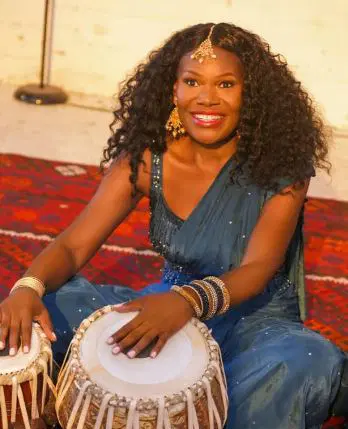US-based Nigerian physician, Bimbo Ogundipe, may not yet be a household name among female singers in Nigeria, but her recent musical endeavors are poised to change that.
Ogundipe discovered her passion for music after releasing her debut album, “Sambro Odo,” in the 90s while working with the Nigerian Sports Commission. As a physiotherapist, she played a crucial role in supporting Nigerian athletes, including the female soccer team, Falcons, at the second World Cup championship in Sweden. She also served as a member of the Nigerian Olympic team in Atlanta in 1996. After the Olympics, she remained in America to pursue her dream of becoming a medical doctor.
After a 28-year hiatus from the music scene, Ogundipe is making a comeback with a new genre she calls ‘AfroAsia Rhythm.’ This genre, encapsulated in her new song “Keke,” aims to highlight the similarities between Asian and African rhythms. She is taking a break from her medical career to focus on music, believing that as an African woman and an ambassador for her culture, this unique blend of music and culture allows her to connect with a global audience.
MY JOURNEY AS A PHYSIOTHERAPIST
Ogundipe trained as both a physiotherapist and a physician, earning her BSc in physiotherapy from the University of Lagos in 1991. After graduation, she secured a job at the National Sports Commission, where she worked with athletes and traveled globally with the Nigerian medical team. Her notable experiences include serving as a physiotherapist at the Commonwealth Games in Canada in 1994 and the World Cup in Sweden in 1995. She also participated in the Atlanta Olympics in 1996 but chose to remain in the United States to fulfill her medical aspirations. While pursuing her residency in family medicine, Ogundipe decided to temporarily step away from her medical career to reignite her passion for music, which had been on hold for nearly three decades.
“I have always loved to sing since I was a child,” she shared. “My parents were both choir directors in various Catholic Churches we attended in Nigeria. When I moved to the United States, I served as a worship and praise leader for a long time before finally enrolling in medical school.”
WHY I TOOK A LONG BREAK FROM MUSIC
The lengthy hiatus from music followed her debut album in 1995, driven by her commitment to a medical career. Upon moving to the US, she needed to complete required courses to apply for medical school, a process that took time alongside her responsibilities in supporting her family. She explained, “Medicine is highly demanding, which is why I haven’t returned to complete my residency program. My music has been on hold for 28 years, but now I’m back to continue from where I stopped with the release of my new song, ‘Keke.’”
CARVING A NICHE FOR MYSELF
Ogundipe is pioneering a new genre called AfroAsian rhythms, blending traditional African instruments with those from Asia. She shared her inspiration for this genre, saying, “Growing up in Nigeria, I not only listened to great Nigerian legends like Chief Herbert Ogunde, Fela Anikulapo Kuti, and Miriam Makeba but also enjoyed Indian music and Bollywood films. This inspired me to incorporate diverse instruments into my music.”
Her project aims to create a distinct sound, separate from Afrobeats, with considerable research invested in bringing this vision to life.
ORIGIN OF THE TITLE OF MY SONG, ‘KEKE’
Ogundipe’s music aims to offer more than entertainment; she desires an intellectual connection with her audience. Her new song, “Keke,” refers to the rickshaw, a significant aspect of transportation. She shared, “The song celebrates transportation, whether it’s a plane, danfo, or kabu kabu, highlighting its vital role in human existence and economic development. I felt it was time to celebrate our transportation system through music.”
MUSIC NOT TAKING THE SHINE AWAY FROM MY MEDICAL PROFESSION
As she embarks on this new musical journey, Ogundipe emphasizes that her passion for music does not overshadow her medical career. Instead, it complements her multifaceted identity as a physician and an artist, allowing her to share her culture and connect with a diverse audience globally.

